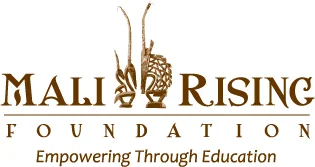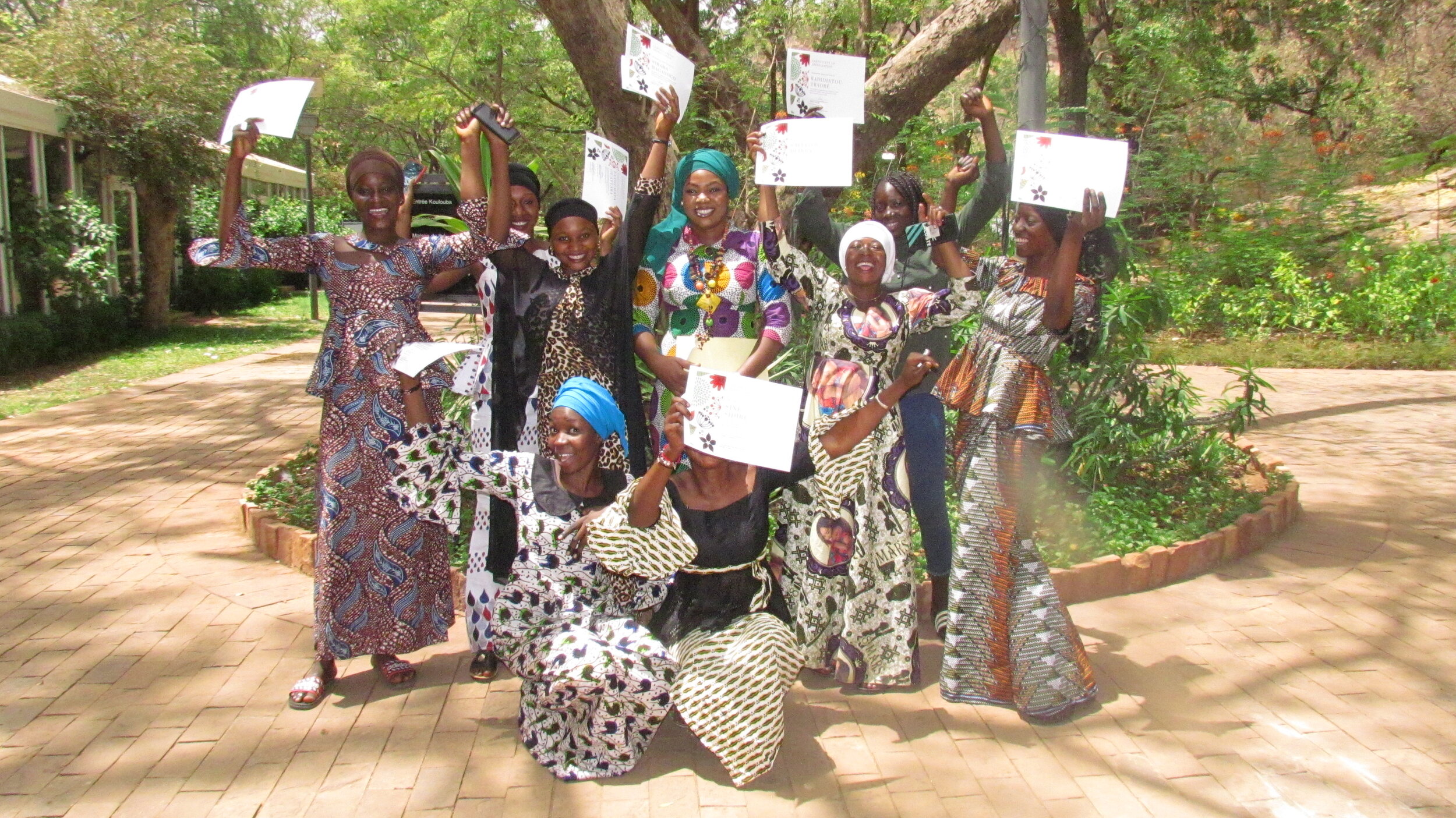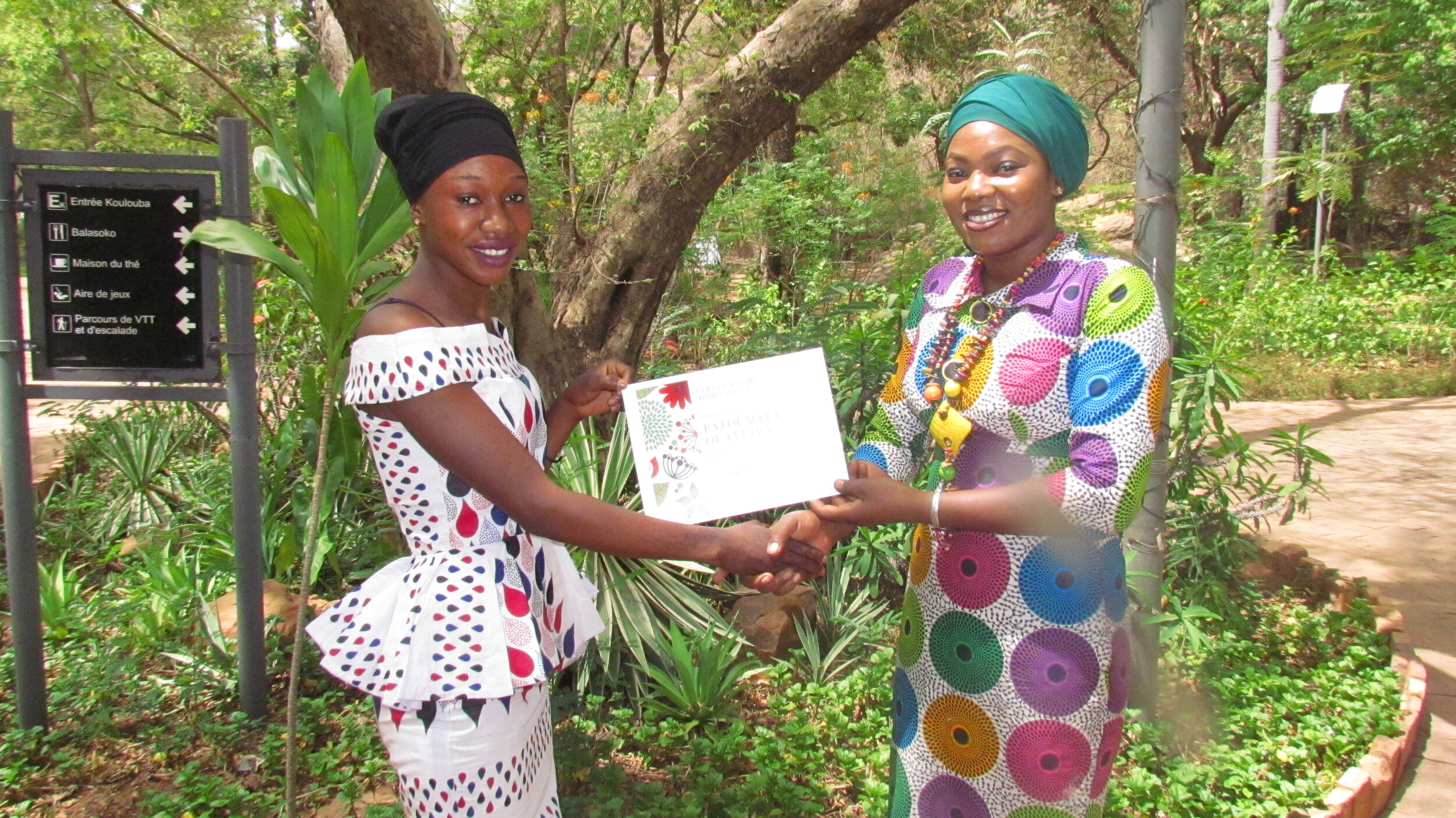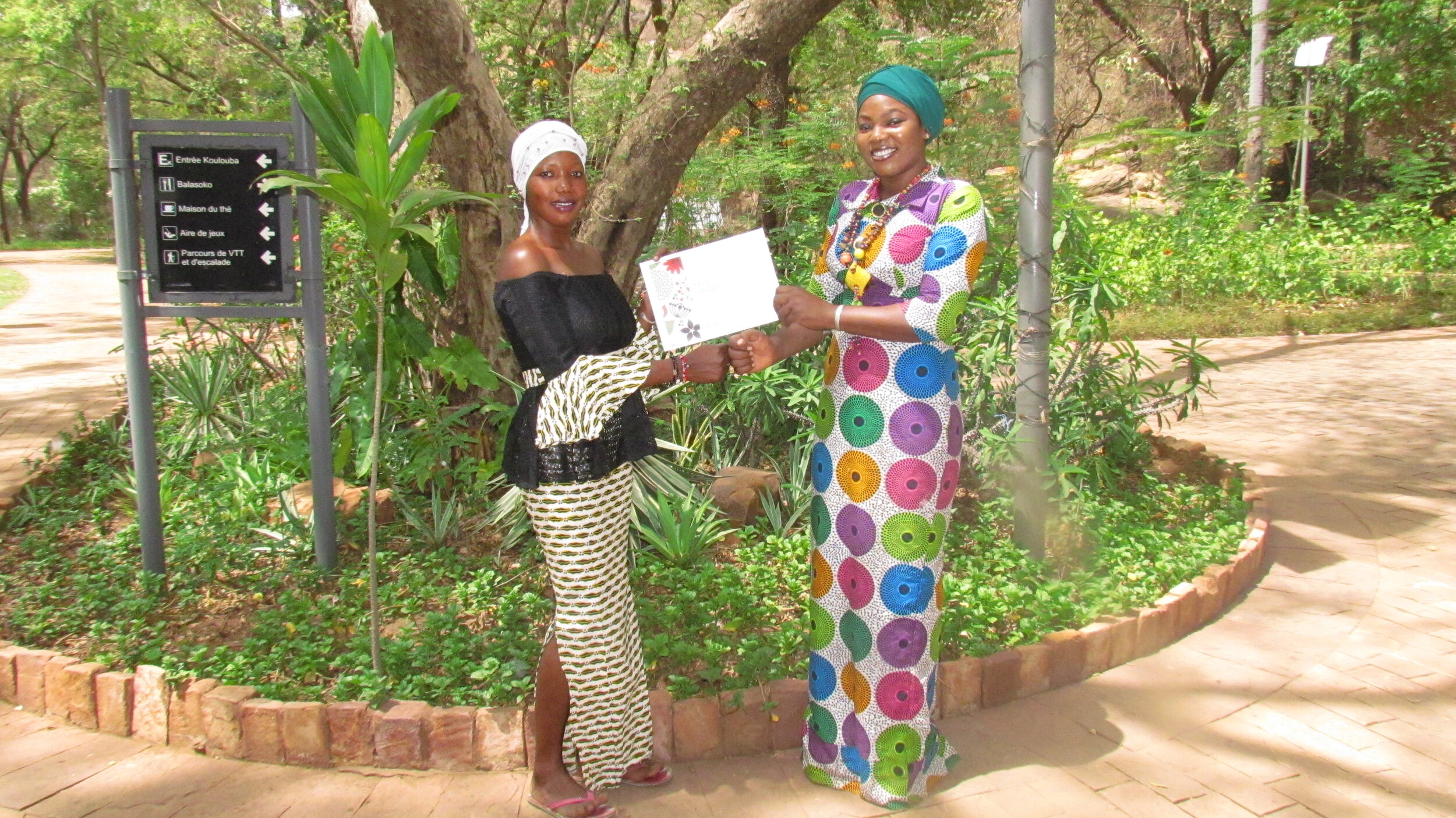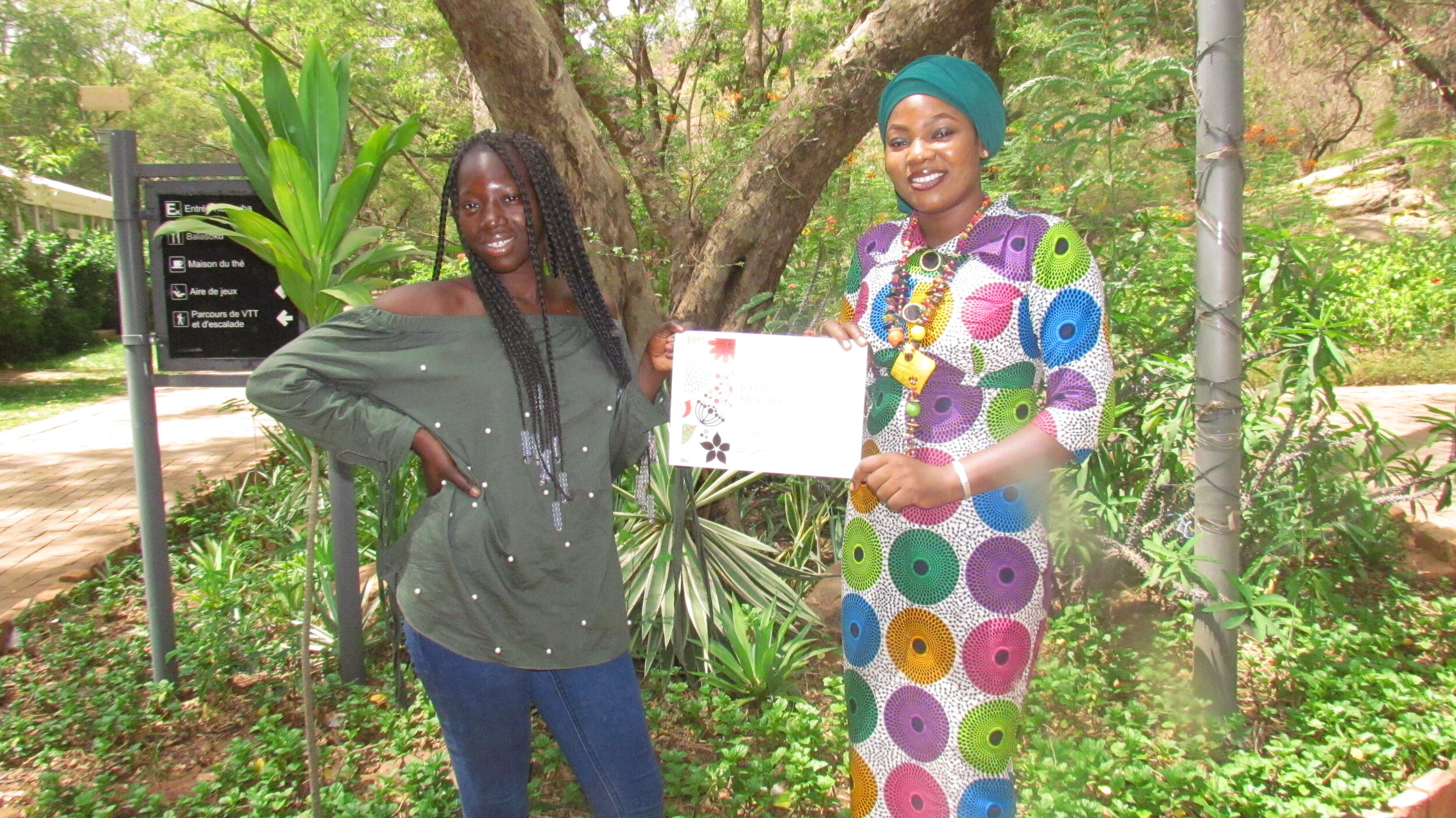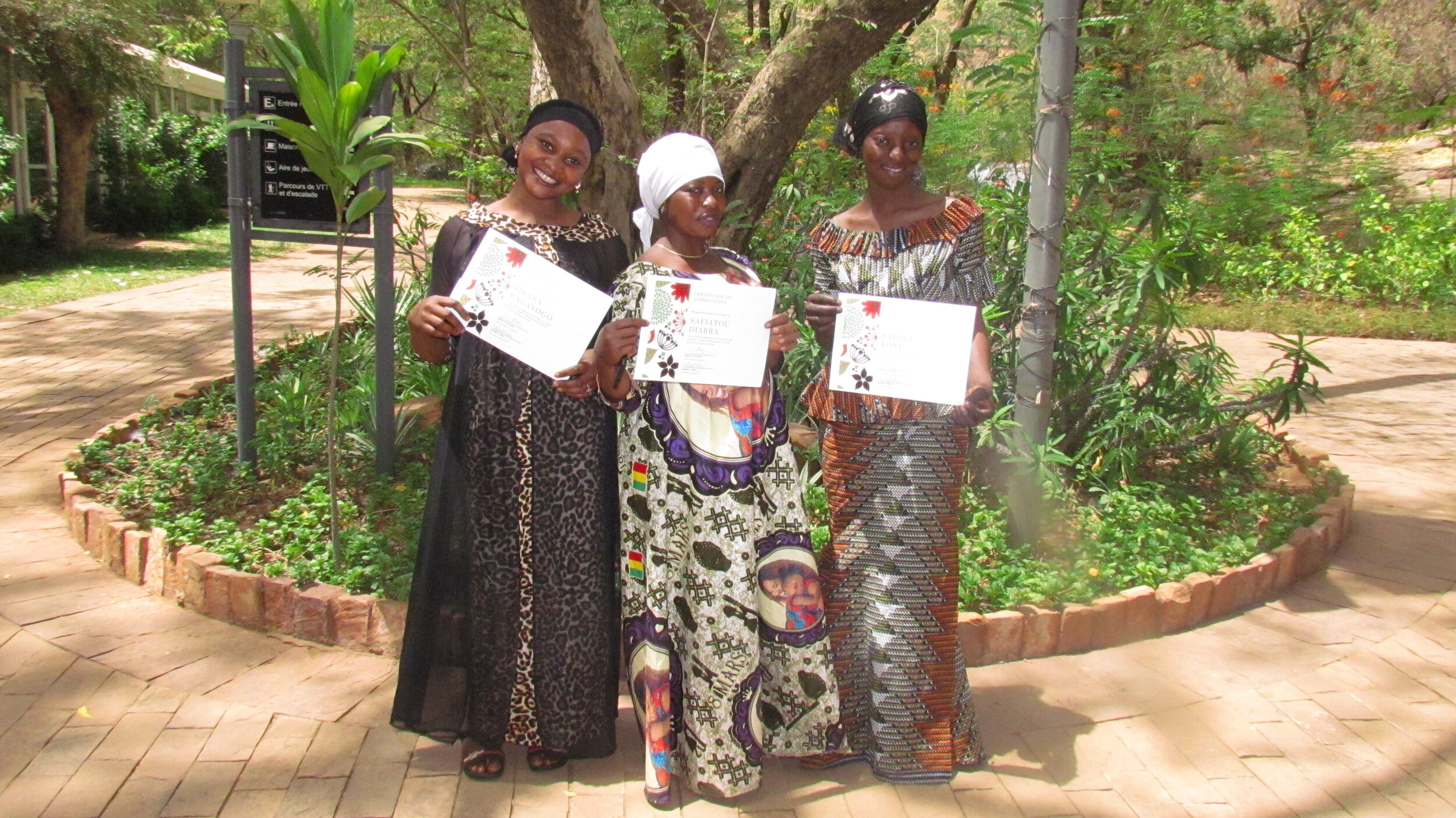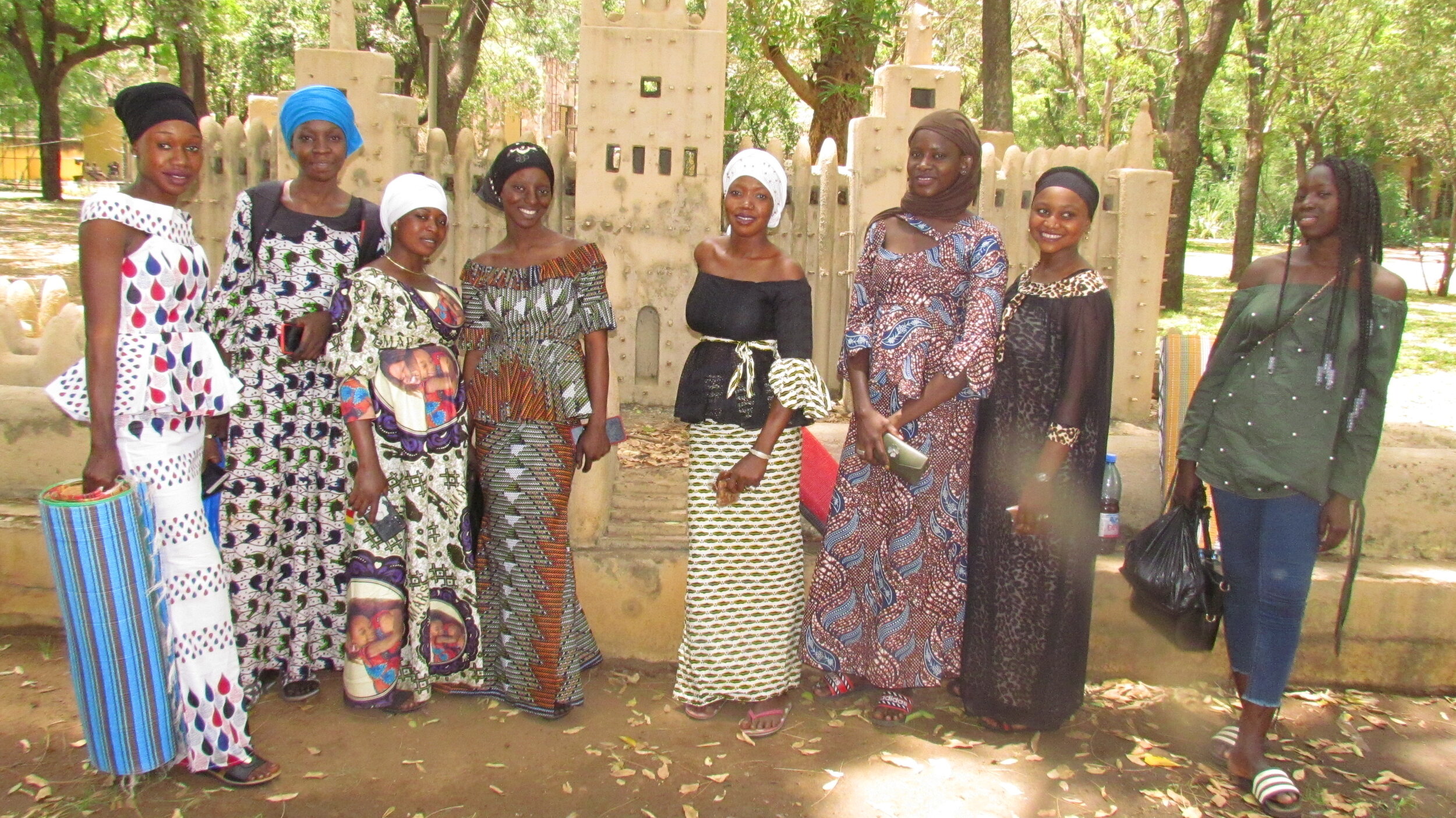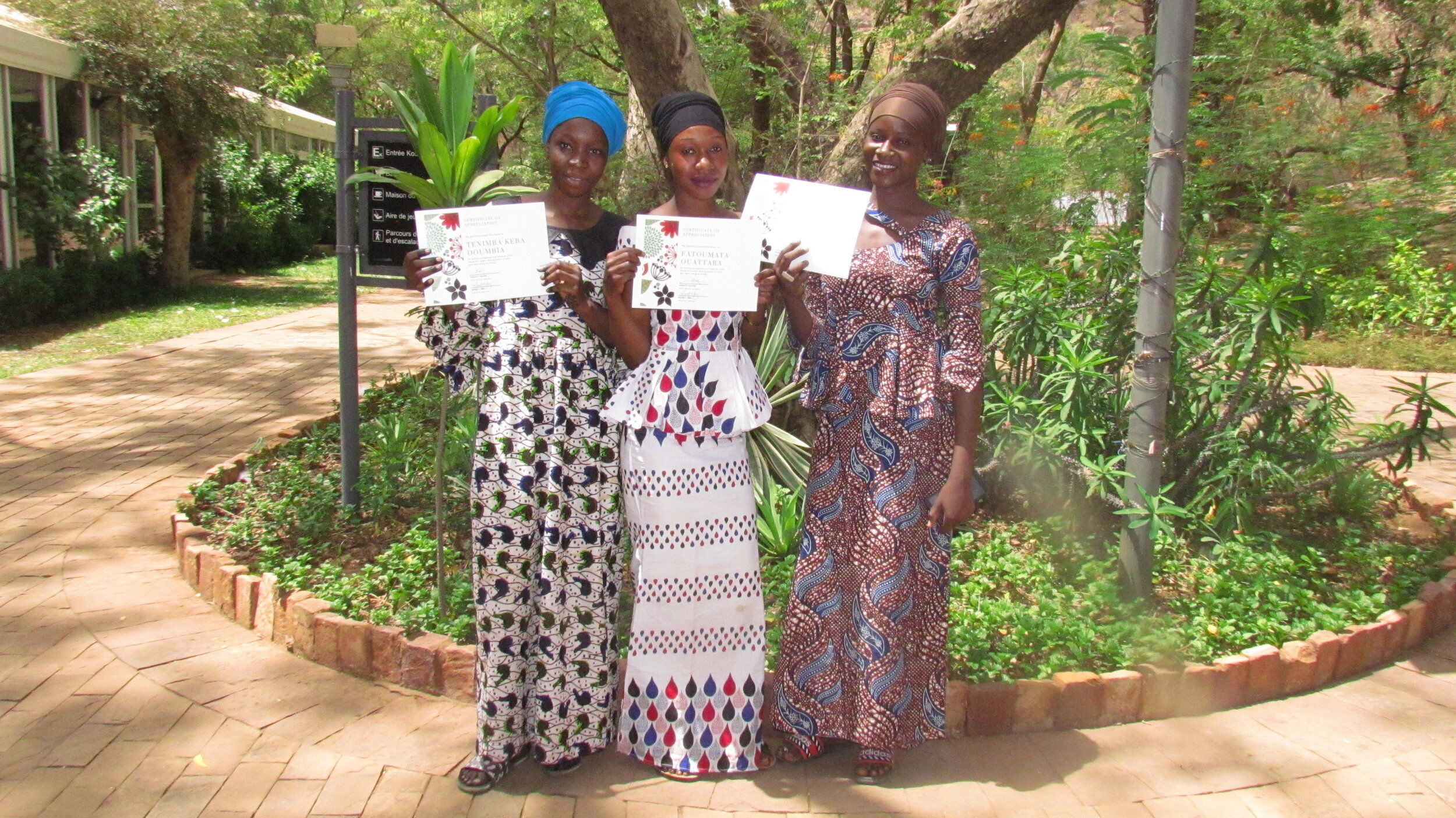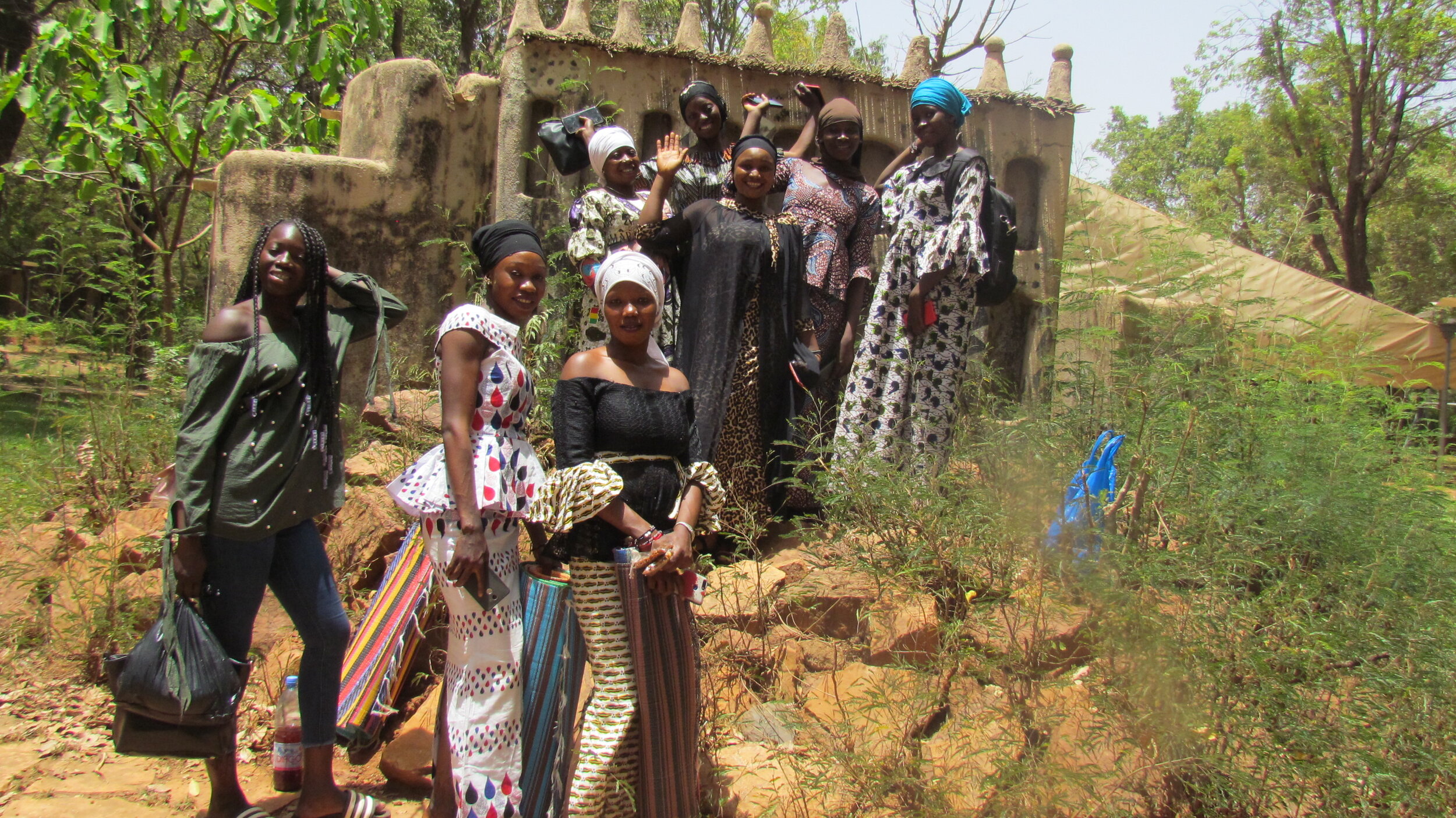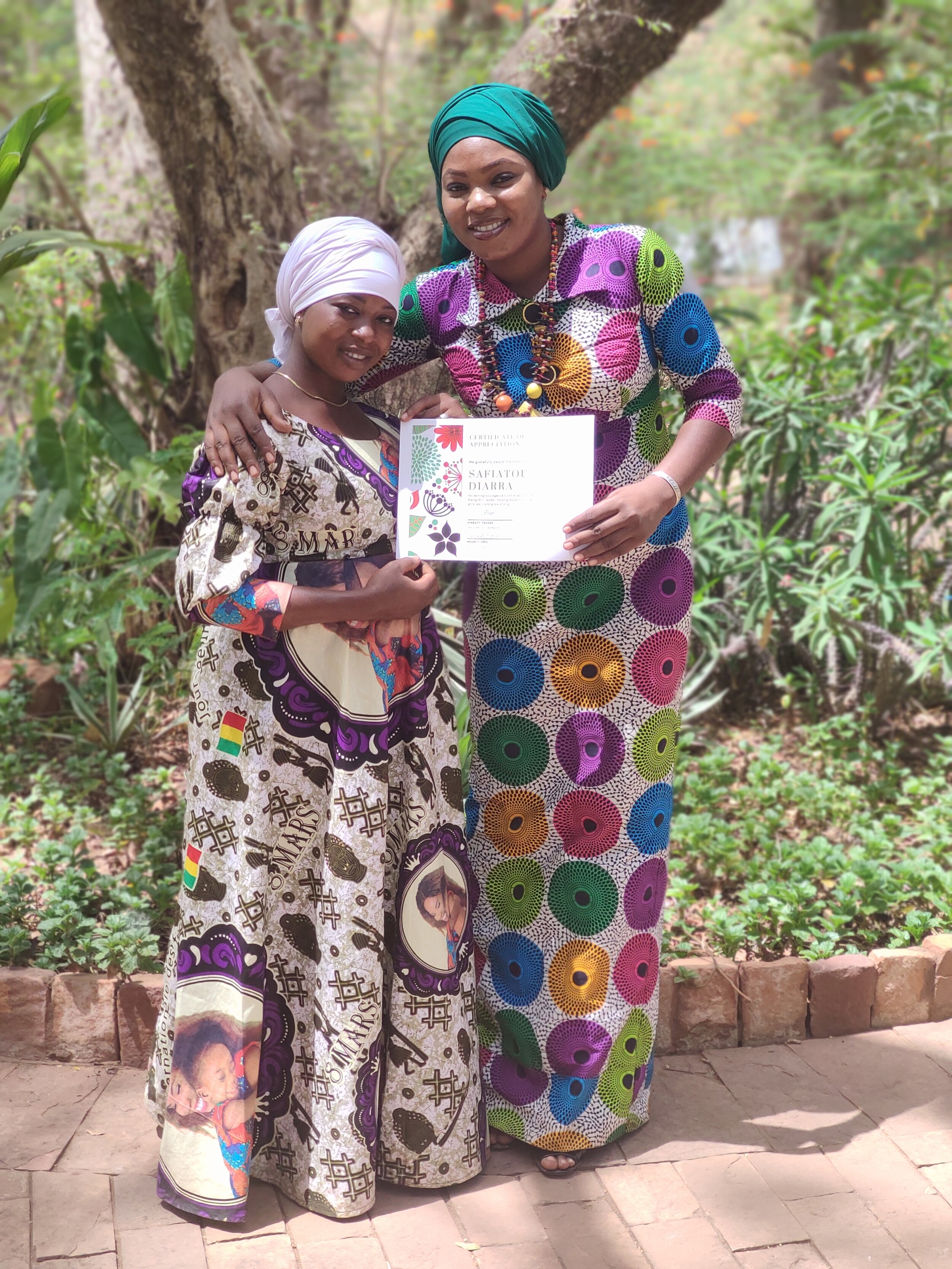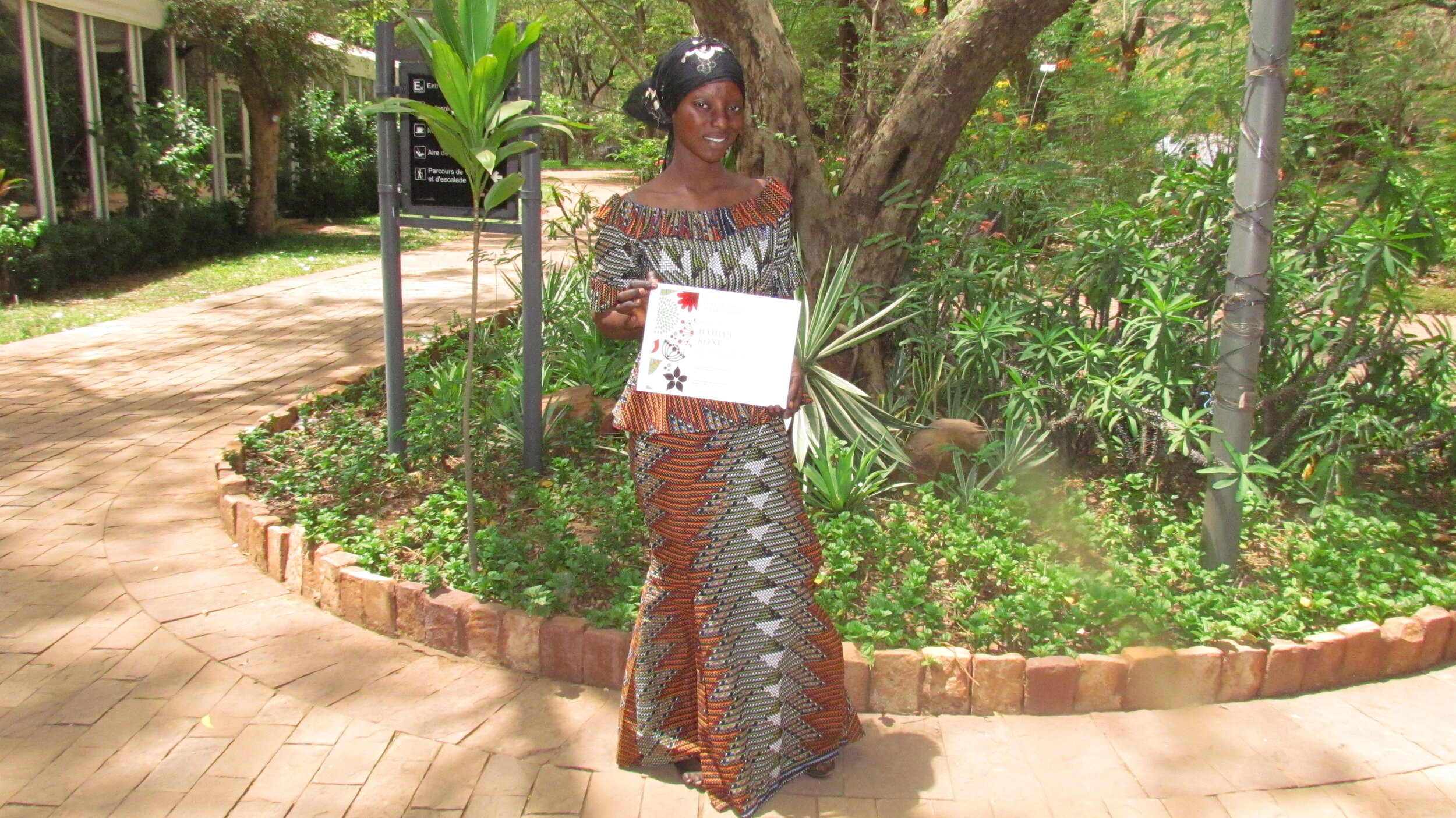At the end of each school year, Mali Rising’s Girls’ Project organizes celebrations in each Project village. We call these celebrations Feasts and use them to bring the whole village together to learn about and celebrate girls’ education. One way that we convey awareness messages is through humorous skits. We focus these skits on sensitive subjects that girls face during their education.
Great Girls Read Gives a Huge Lift
In Mali, all too often we find that students who diligently attend school still cannot read. Based on my own personal observations, I would estimate that around 80% of middle school students are not able to read a sentence correctly in French and 85% of elementary students are not able read aloud a simple sentence like “My school is pretty.”
Through the Girls’ Project’s Great Girls Read campaign, I am focused on changing this dynamic for our girls. I am particularly passionate about focusing on reading with our elementary school girls, because if they can learn reading young it will set them way ahead in middle school!
Chatting Around a Dish With the Girls' Project Girls
As part of the Girls’ Project work, each spring we organize a session on eating and cooking healthy, local foods. This session includes preparation of a group meal with the girls. But the session is not only about food – cooking and eating together gives us a great, informal way to talk and share. While we wait for the meal to cook, we share stories around the table. Each girl tells a story that marked her, and shares her dreams and her goals. This is a very important activity that allows girls to confide and share their experiences.
Discussing Gender Violence: Boys & Girls
As we work to help girls succeed in school, we know a good relationship between girls and boys is very important for the success of girls. In Mali, school-based violence is a large-scale problem with harmful consequences for girls, but also for society as a whole. The violence suffered by girls affects their learning, their physical and mental health, their personality and their future. That’s why February’s theme for the Girls’ Project meetings was Stopping School-based Violence.
Breaking Down Barriers To Girls' Enrollment
by Hindaty Traore, Girls Project Manager
Alimatou and Sira in front of their new middle school classroom at Sue Taylor Middle School.
One of the times I feel most proud of my work in the Girls’ Project is when I can help girls who don't want to go back to school or parents who don't want to enroll their daughters in school. Talking through issues with the girls and the parents and seeing them shift to being passionate about girls’ education is just so rewarding!
As the school year began last month in Mali, one of my first priorities was to ensure that many girls could be enrolled in the Girls’ Project partner schools. To this end, we made radio announcements and meet directly with many families. For the most part, these strategies resulted in great enrollment numbers in the schools.
However, despite all my work I knew there were still some girls who were not yet registered for school in October. For example, in the village of Diorila, the principal of our partner school there informed us that the principal of the primary school in Léna -- one of the neighboring villages of Diorila whose pupils usually go to the middle school of Diorila -- had told him that two girls from his school were not enrolling.
I immediately went to Léna to speak to the principal and then to meet with the parents of these two girls. Each girl faced a different barrier to her continued education. The first girl, Alimatou , did not have a birth certificate and her parents thought that meant she could not attend school. The second girl, Sira, was about to be sent to Bamako to look for work to earn money for the family.
For the first family, I was able to assure them that the lack of a birth certificate was not a barrier to enrolment for Alimatou. The parents were pleasantly surprised and quite happy to enroll their daughter. With Sira’s family, the discussion was a bit tougher because the family really needed the funds Sira might earn in Bamako. However, after a discussion of the longer-term economic benefits for the family of keeping Sira in school, they too agreed to enroll their daughter.
Our intervention was able to solve the problems of both girls and they started school just one week late. Given the distance between Diorila and the village of Léna, the two girls settled in Diorila with one of their relative's acquaintances. In exchange, their parents will send sacks of rice to help the host family in Diorila.
Many girls in Mali’s rural villages see their future destroyed by a simple problem or barrier like this. One of the simplest things the Girls’ Project can do is work with families to problem solve and break down these small barriers.
Boys Explore Education as a Human Right
In Mali, girls’ education is very challenging matter especially in rural areas. Although girls are often very interested in education, many of those around them may resist the idea. A girl’s parents or even her own brothers may not be supportive of the girl’s wishes to stay in school. That’s why Mali Rising’s work to help girls’ education can’t focus only on the girls – we must reach the parents and boys as well.
Kadia's Scholarship Keeps Her Fed & Shod
Mali Rising’s Inspiration Scholars sponsors are changing lives. By donating a modest scholarship, these donors help our most outstanding middle school graduates go on to vocation school or high school. The scholarships help the specific recipients of course, but the gift ripples out even farther. Other students are inspired to study hard in the hopes of a future scholarship. Parents see their earlier investment in education paying off and enroll young siblings. And Scholars return to their home villages with skills and an income that helps their whole family. We recently caught up with one Inspiration Scholar, Kadia Traore.
Getting the Second Chance We All Deserve
Girls Explore the Lives of Career Women
As part of exposing our Girls Project girls to the diverse career opportunities an education girl can dream of, we recently interviewed some career women in their workplace and videoed the interviews. In the past, we brought these career women to the villages to meet the girls directly but because of the pandemic we took a questionnaire from the girls to the career women.
Celebrating our Girl Leaders!
By Hindaty Traore, Girls Project Manager
Two years ago, we began a new piece of our Girls Project work. After three intense years of work in our initial three Project villages, we trained local young women to return to their village to shepherd the villages’ Girls Group meetings and serve as role models for young girls in the village.
Each year, we carefully select two young women as Girl Leaders in each village. We provided extensive training and support for the Girl Leaders throughout their year of service, along with a stipend. The training of Girl Leaders has enabled them to become aware of their limitations, to mobilize their own resources, and to have confidence in each other.
All of the Girl Leaders had a story before the training. Some girls felt unable to go stand in front of a crowd and convince other girls to continue school, some were shaking, some were crying when they tried to stand in front of a class, and others were not confident in themselves. However, in early April this year’s Girl Leaders left their last training of the year with strong skills and positivity.
This training was an opportunity for the girls to train in teamwork, to raise awareness, to bring out hidden assets. The skills they have learned helped the Girl Leaders serve our Girls Groups, but have also helped them in their larger lives. For example, according to the Girl Leaders their parents treat them differently because they trust the young women more.
A job well done deserves an excellent reward. To salute the wonderful work they have done throughout the school year, Mali Rising awarded the Girl Leaders certificates of recognition. For this presentation of certificates, we met at the Bamako National Park. Half of the Girl Leaders had never been to the park before, so the trip itself was part of the reward! To make the event even more powerful, we invited last school year’s Girl Leaders to attend too – creating a powerful group of young women to celebrate together!
Looking back over the last two years, the 11 Girl Leaders (we have 6 Girl Leaders each year, but one women returned to repeat her service this year) we trained to return to their respective villages to support their younger peers in middle school carried out their tasks successfully. For 9 months the Girl Leaders went to the villages to meet with the girls and help them stay in school and succeed. Girl Leaders are a kind of human transmission of skills, courage, motivation, and role modeling to all girls in their village.
The 11 girls trained in the last two years have become good examples in the village. If fact, there are some girls who dream of being like the Girl Leaders now. The younger girls who are in the village want to take over the role of Girl Leaders someday so they can come home and educate their little sisters in turn!
The benefit of building the leadership capacities of these girls is threefold: it defines the heroines and role models for other young girls, it empowers and makes the Girl Leaders themselves stronger, and it challenges outdated community norms. We love our Girl Leaders!
Check out the photos on this page to see our Girl Leaders as they receive their certificates from me, Hindaty, and explore the National Park together.
